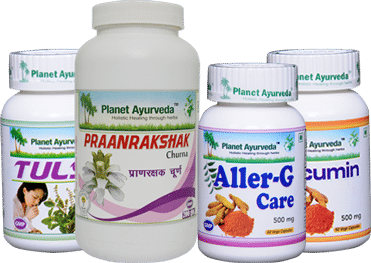Introduction
Our nose is a single streamlined anatomical structure located at the centre of the face. Its shape and size accounts a lot for the facial features and the overall look of the person. Apart from the cosmetic reasons, nose performs important functions of conditioning, protection and sensing smell. The air we breathe in travels through the two nostrils which are divided by an inter-nasal septum. The hair and mucous lining of the nose conditions the air that has to reach the lungs while passing through the nose. The dust particles get trapped by the fine hair present in the internal part of the nose so that clean air reaches the lungs. Third most important function performed by our nose is the perception of smell. It helps us recognise the flavor of our favourite food, favourite perfume or bad and degrading smell which may be harmful to us. Nose, thus acts as an important sensory organ performing multiple functions at the same time.
What is Rhinitis?
It is an inflammation of the inner lining of the nose. It is a common problem in people suffering from allergies (allergic rhinitis), asthma and chronic sinusitis. Rhinitis may be chronic, allergic or a mix of both.
Post nasal drip is the most common symptom of chronic rhinitis. It is the accumulation of thick and profuse mucous secretions at the back of the nose giving a feeling of mucous dripping down to the throat. It is most often a result of the non – clearing of the nasal mucous that has accumulated as a result of rhinitis. Other symptoms of chronic rhinitis include stuffy nose, runny nose, sneezing and mucus in the throat.
What are the Common Causative Agents for Chronic Rhinitis?
They may range from chronic viral infections, allergies, cold temperatures, particular foods and spices, pregnancy and related hormonal changes, High blood pressure medication side-effects, anatomical problems etc.
Other Factors Causing Poor Clearance of Nasal Secretions
These include Stress, advancing age, oral tumours, GERD (Gastro esophageal reflux disease) etc. Smoking and swallowing problems due to many reasons are other important factors that lead to mucous clogging and feeling of nasal congestion when the nasal secretions may not be that bad.
What are the Risk Factors for the Development of Chronic Rhinitis?
- A big factor is the exposure to irritants like smog, tobacco fumes, smoke etc. to name a few.
- People above 20 years of age are more prone to develop chronic rhinitis as compared to allergic rhinitis which affects the individuals of age below 20 years.
- Over usage of irritating nasal decongestants or sprays also precipitates rhinitis as a rebound effect.
- Females are more prone to develop chronic or non – allergic rhinitis during the time of hormonal fluctuations in the body like menstruation and pregnancy.
- A number of health problems like hypothyroidism and chronic fatigue syndrome can worsen rhinitis making it a chronic problem for the patients.
Herbal Remedies for Chronic Rhinitis by Planet Ayurveda
Planet Ayurveda provides best combination of effective herbal remedies such as Allergy Care Pack for ayurvedic treatment of chronic rhinitis. These herbal remedies are manufactured from 100% pure and natural herbs; without the use of any chemicals, binders, fillers, colors, yeast, starch, preservatives or additives. These herbal remedies are prepared under the supervision of renowned Ayurveda experts.
Dosage
- Tulsi Capsules – 2 Capsules, twice daily with plain water after meals.
- Pranrakshak Churna – 1 teaspoonful, twice daily with plain water after meals.
- Aller-G Care – 2 Capsules, twice daily with plain water after meals.
- Curcumin Capsules – 2 Capsules, twice daily with plain water after meals.
Products Description
1. Tulsi Capsules
Tulsi herb has great nutritional value and also depicts phlegm pacifying properties. There are many varieties of this herb namely, Indian Tulsi, Cinnamon Basil, Lemon Basil, African blue basil, Sweet Basil etc.
2. Pranrakshak Churna
It is another purely herbal formulation adapted from the vast literature on herbs explained in Ayurveda, an age old system of medicine. It is a combination of shirish (Albizia lebbeck), vasa (Adhatoda vasica), anantamool (Tylophora asthmatica), dalchini (Cinnamomum zeylanica), bharangi (Clerodendrum serratum) and madhuyashti (Licorice).
3. Aller-G Care
It is a pure and herbal capsules made from standardised extracts of Haridra (Curcuma longa), Neem (Azadirachta indica), Shirish (Albizia lebbeck) and Ashwagandha (Withania somnifera). It is a 100 % vegetarian preparation made with purified extracts of the above mentioned herbs. The capsule shells are non – gelatinous and free from added chemicals.
4. Curcumin Capsules
Curcumin is the active compound of Turmeric. It is a rhizomatous herb belonging to the Ginger family (Zingiberaceae). It is an Indian native plant that predominantly grows in the south – western parts of the Indian subcontinent. Rhizomes are the main part of this plant which are used for many useful purposes.
To buy Allergy Care Pack, please visit store.planetayurveda.com/products/allergy-care-pack.
Home Remedies for Chronic Rhinitis
Irrigating the nose with salt water is a good option for treating chronic rhinitis. It clears the clogged mucous linings of the nose and throat. Bulb syringe, pots for jal neti and bottle sprayers can be used for this purpose.
The process can be done at home by preparing 200 ml of saline solution at home. Note that the water that you are taking for preparing the saline solution should be sterile or boiled.

